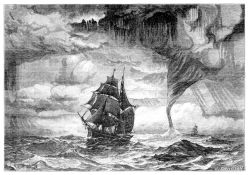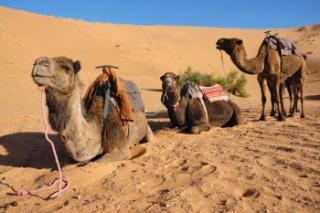
Exploring the history and experiences of mixed heritage persons and inter-racial relationships across the world

Exploring the history and experiences of mixed heritage persons and inter-racial relationships across the world
 Short range trading is likely to have been with us since humans started to communicate. The Historian, Peter Watson is said to have traced the existence of long distance trade to about 150,000 years ago.
Short range trading is likely to have been with us since humans started to communicate. The Historian, Peter Watson is said to have traced the existence of long distance trade to about 150,000 years ago.
Certainly by the height of the Egyptian civilisation, long distance trading was in full swing. The Phoenicians were noted sailor traders of the Mediterranean even establishing trade colonies as far north as British Isles. From the beginning of Greek civilization, financially lucrative trading brought valuable goods, especially luxuries, to Europe from the Far East, including India and China. The early trade routes more commonly known as the silk routes extended over 4,000 miles and enabled the transportation of goods between Ancient China, Ancient India, the Middle East and the Mediterranean civilisations. Although the term route implies long journeys, goods were transported by a series of middlemen on varying routes and were traded on in markets of the towns and cities.
It is very difficult to separate these early trading without the acceptance of exploration - leading to the discovery of new commercial opportunities, the trading and the setting up of trading posts and other settlements. Whilst the European trading seemed to fade in the Dark Ages after the Roman empire, the Arabs and the Africans and Asians continued to trade within the Indian Ocean coastlines. The effects of the trading from those periods are still with us in some ways. Zanzibar, the island state of Tanzania, comes from the Persian word "Zangi-bar" meaning the place of black. Persian traders settled at what became Zanzibar City (Stone Town) as a convenient point from which to trade with East African coastal towns. Later the Arabs would arrive changing the g in Zangi to z and building a mosque on the island. The Shirazi people of Zanzibar claim they are descended from merchant princes from Shiraz in Persia who settled along the Swahili Coast though this has not been proved as yet. The Arab trade along the African coast goes even further south with some suggestions that their influence on the Mozambican coast resulted in the building of Great Zimbabwe in deep in the interior - in present day Zimbabwe.
 Europe's recovery from the Dark ages saw the expansion in the in the 9th,10th and 11th centuries of the Vikings who were not averse to trading or plundering and raping all the way past Greenland to even setting up a a short-lived settlement L'Anse aux Meadows in Newfoundland, off the coast of Canada. The aboriginal ancestors of the Métis, an indigenous First People of Canada who trace their descent to mixed European and native parentage may have originally interacted with the Vikings in around 1000 AD.
Europe's recovery from the Dark ages saw the expansion in the in the 9th,10th and 11th centuries of the Vikings who were not averse to trading or plundering and raping all the way past Greenland to even setting up a a short-lived settlement L'Anse aux Meadows in Newfoundland, off the coast of Canada. The aboriginal ancestors of the Métis, an indigenous First People of Canada who trace their descent to mixed European and native parentage may have originally interacted with the Vikings in around 1000 AD.
From about the 13th century, a number of European counties wished to bypass the mostly Islamic middle men of the silk routes and so sought alternative routes to India which directly lead to the discovery of the Americas. The true Age of Exploration was in no doubt driven by trade from this era with both the Spanish and Portuguese leading the way in looking for alternative routes to the rich pickings in the Far East. The names of Christopher Columbus and Vasco da Gama are from this era. It certainly was a pre-cursor to early settlement and then wide scale colonialism.
These long distance trades meant there was bound to be inter-cultural exchanges of ideas, wealth and genes. Maybe we can see Cleopatra's liaisons with Julius Caesar and later Mark Anthony as inter-racial affairs though in truth Cleopatra was of Greek origin rather than of Egyptian. Settlements suggest some sort of permanency and given the history of human behaviour, inter-breeding. In many of these early inter-cultural couplings it would be natural that the off-spring would continue to operate in the society they were born into and over a few generations the descendants would be indistinguishable from the general population.